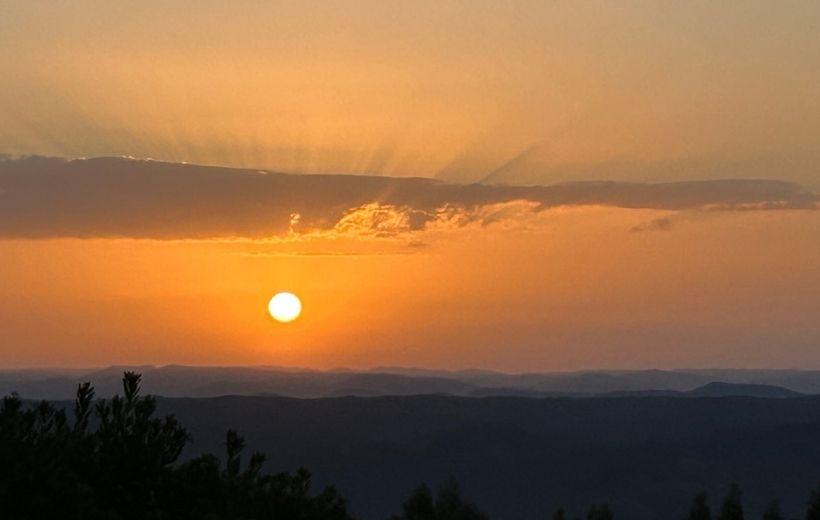What Can We Stop Doing to Help the Planet?
By Mark Moore • 3 min read

Buddhist proverb advises, “Stop throwing stones in the water. Soon enough, the ripples will fade, the surface will return to calm, and once again, the moon will be clearly reflected.” This is usually understood as a metaphor for what, in Mingyur Rinpoche’s tradition, we call “non-meditation”: less about doing and more about what we stop doing. The less we do to disturb the mind, the more the mind’s nature manifests automatically.
Can we understand our relationship with all of nature in this way? What might it mean to “stop throwing stones” on a planetary level?
Like the mind, the Earth is imbued with resilience, enabling it to return to harmonious equilibrium if only we allow it enough time undisturbed. During the COVID-19 pandemic, when industry and combustion slowed for a time, we saw how dramatically air pollution dissipated in just two or three months. Skies cleared, and people in the plains of northern India enjoyed views of the Himalayas from their homes for the first time in their lives. That was a taste of what our world can be like when we simply “stop throwing stones.”
So, what can we do — or, more to the point, stop doing — to allow nature to return to equilibrium, as Rinpoche describes in this month’s video? Climate science shows that the most helpful things we can stop doing include two big ones:
Stopping or even greatly reducing these two consumption patterns can do more to help nature recover than all other efforts combined. And there’s much more we can do simply by doing less: we can buy less, fly less, drive less, use less nonrenewable energy, and so on.
GIVING UP VS. SIMPLY GIVING
The catch, of course, is that — whether we’re talking about our own minds or the planet — to “stop throwing stones” means changing some habits. And when it comes to practicing compassion for our world, sometimes we feel as though we have to “give up too much.”
As I’ve gradually thrown fewer stones over the past 30 years — and, in my “day job,” helped others do the same — one shift that has proven helpful relates to what Rinpoche says about intention and volition. The more we connect with compassion for the Earth and its beings as the intention, the more we feel the naturally arising wish to help however we can. We experience our “doing less” not as “giving things up” but simply as giving. We give nature the gift of undisturbed nature. We offer space and time for her to recover.
The more we experience ourselves as inseparably part of the whole of nature, the more it feels like the most natural thing in the world to take care of the whole world, the way a hand naturally does what it can to care for the whole body.
Mark Moore has led meditation retreats and sustainability programs in the Himalayas and beyond for a decade, including Joy of Living retreats for Tergar. Cofounder of Dharmalaya Institute in India and Earthville Institute in the US, he has been exploring wisdom traditions and sustainable development since 1995. An educator by day and artist and writer by twilight — editor and coauthor of To Create the World That Ought to Be, Mark divides his time between the Himalayas and the Colorado Rockies.
Learn meditation under the skillful guidance of world-renowned teacher Yongey Mingyur Rinpoche at your own pace.


“When you arrive in Nepal, things tend to work out one way or another,” said Anna, a bubbly 33-year-old who makes her home in Melbourne.

“I kept worrying about my “incorrect” meditation practice. I just knew I was not doing it right! This feeling remained an undercurrent — not debilitating but present — until I encountered the Joy of Living with Mingyur Rinpoche.” — Ingrid White-Wilson

A new monthlong Joy of Living retreat in Portugal is helping meditators experience the full arc of Mingyur Rinpoche’s teachings — and the results are deeply inspiring.
If you enjoyed reading our articles, please join our mailing list and we’ll send you our news and latest pieces.